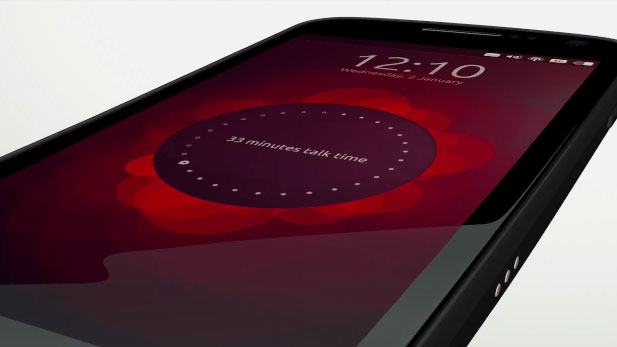Ubuntu's seen the future. Can it deliver it?
Are you ready to replace your PC with a phone?

You can't accuse Canonical of lacking ideas: the firm isn't just bringing Ubuntu Linux to smartphones - it's going to change the way we think of PCs.
It's a simple idea with big ramifications. Instead of having separate PCs and phones, our phones will be our PCs and our PCs will be our phones. When we're out, we'll use a smartphone interface. When we're home, we'll dock our device and get a desktop.
I know what you're thinking. Motorola's Atrix 2. Windows 8. Asus PadFone 2. But what Canonical is doing here is more interesting and ambitious, I think.
Take Windows 8, for example. While Windows 8, Windows RT and Windows Phone share a lot of the same underpinnings, they're separate OSes for separate devices: your Windows RT tablet doesn't become a Windows 8 Pro laptop when you attach a keyboard or a Windows Phone 8 phone when you leave the house.
Canonical's idea is to have one OS whose interface changes depending on what you plug into it.
I think Ubuntu is closer to what's going on in web design rather than what's going on in Windows.
Responsive apps
Web designers are rather keen on what's called Responsive Web Design. The idea is simple: instead of creating multiple websites for different devices (flash-enabled tablets, smartphones, iPads, TVs, PCs), you create a single, responsive one. That site has a fluid layout that changes according to what you're using, so as screen sizes get smaller the layout gets simpler. It's popular because it's eminently sensible.
Sign up to the TechRadar Pro newsletter to get all the top news, opinion, features and guidance your business needs to succeed!
What Canonical's suggesting here, I think, is the app equivalent. With just one OS to code for, developers can write apps that display more or fewer features depending on what they're on. Smartphone? Just the basics. PC? All the bells and whistles. Giant flat-screen TV? Media UI.
That doesn't mean I think it'll work, though.
The key phrase in the press release is that Canonical is "ready to start working with partners". That's tech-speak for "we don't have any partners", and without widespread and enthusiastic OEM support any new OS faces an enormous uphill struggle.
That's why the year of desktop Linux never arrived, and it's why Ubuntu's grand vision could prove rather difficult to achieve. This, after all, is a market where even the mighty Microsoft is struggling.
I hope I'm wrong, because Canonical's vision is bold and fun - and I agree with them that the future is probably a mobile device that powers whatever happens to be nearby.
But the world of tech is littered with the corpses of brilliant ideas that were massively ahead of their time. Inventing the future is the easy bit. Making it happen is an awful lot harder.
Contributor
Writer, broadcaster, musician and kitchen gadget obsessive Carrie Marshall has been writing about tech since 1998, contributing sage advice and odd opinions to all kinds of magazines and websites as well as writing more than twenty books. Her latest, a love letter to music titled Small Town Joy, is on sale now. She is the singer in spectacularly obscure Glaswegian rock band Unquiet Mind.
